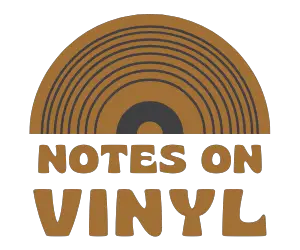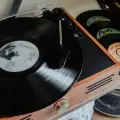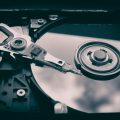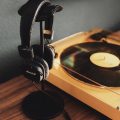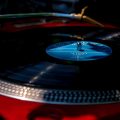Have you got a bit of water on one of your precious vinyl records? Or have you spilled a whole glass of water over a whole bunch of records? Does water ruin vinyl records? And can vinyl get wet?
All this and more today as we run through some of the key questions around cleaning vinyl records, storing vinyl records, and what to do if your precious records get wet.
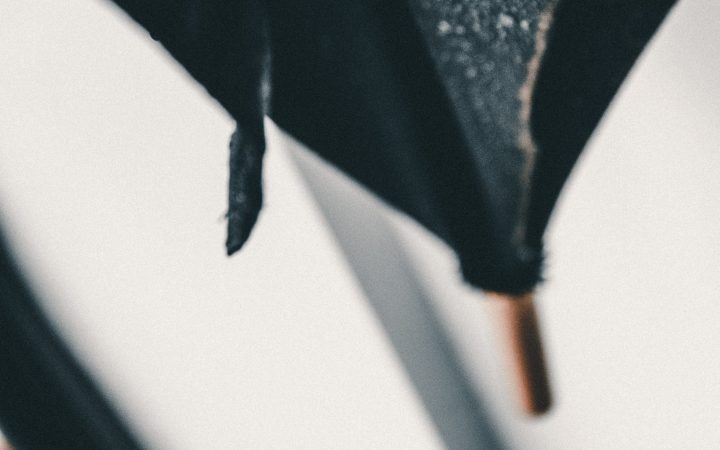
Do Wet Vinyl Records Sound Better?
Though this might sound like a rather ridiculous question, plenty of theories are floating around that wet vinyl records sound better than dry ones. This theory goes that if water (or any other cleaning product for that matter) is used to play an old vinyl record, the crackling sound will be significantly reduced.
While this is to a certain extent true – a clean record will, in fact, have less cracking and noise than a dirty record – this does not mean you should jump out of your seat and wet down your record right away, let alone play it while it is wet.
Sure, you should wash your records regularly (and learn how to clean vinyl records properly), as this can considerably increase the lifespan of your records. But this is not a case of vinyl plank flooring, so more often than not, a dry record brush will do the job. Vinyl records do not so much share the vinyl plank flooring waterproof properties, so you will need to be a little more gentle.
This is a good thing for those who are a little on the lazier side, for you do not need to get out the soap and sponge every single time you play a record. In fact, washing a record in this way too often can easily lead to the sprouting of mildew and/or mold on the record, especially if you are not properly and adequately drying the records after washing (a feat in and of itself).
Indeed, you do not need to dunk your record into water and/or soap every single time, nor even to make it sound good. Chances are, all you will need is a good record brush or anti-static brush like the one below.
What Happens if a Vinyl Record Gets Wet?
Calm down, for there is no need to panic. The best thing for you to do is simply to dry the record as soon as possible and avoid playing it in the interim. Much like vinyl flooring, you can easily dry it off yourself, and, unlike luxury vinyl plank flooring, use any old soft and thin cloth to gently dry the water from the record.
If, however, the liquid spilled was a soda or some other sugary drink, then time is of the essence. In such instances, you will need to use soap and/or water to rid the record of the sticky sugary substance, though it might take a little more scrubbing if the liquid has dried a little more.
However, ensure that you do not scrub too hard. You shouldn’t have to be told that this can do irreversible damage to the grooves of the record, causing the record not to play properly anymore. Once the water that you have used to clean the sugary liquid has dried up, you should be fine to play the record again.
What is the Best Way to Clean a Vinyl Record?
Now is as good a time as any to refresh yourself on your cleaning technique, for it might have gotten a little lame over the years. After all, knowing how to properly clean a record is a vital part of being a collector and ensuring that your records last as long as possible.
Each person has their own method, and we would not want to encroach on that, but there are several do’s and don’ts that ought to be adhered to if you intend to keep your records for longer than a wash or two.
There are, for example, some chemicals that are tried and tested and will not harm your records if they come into contact with them – i.e. the Groovewasher or the Spin Clean Record Washer. On the other hand, there are plenty of other chemicals that either have not been tried and tested in this way or that are certified to be bad news for your record collection.
These are not vinyl floors nor vinyl planks, nor are they vinyl plank floors, after all. Make sure you read all of the ingredients on any cleaner before bringing it into contact with your record, and do some research on any that you are not familiar with.
The easiest and least harmful method is to use distilled water. The use of distilled water is vital, for water purity can vary wildly from region to region and state to state – some areas will have much harder water full of minerals that cause limescale and the like.
If you are still unsure of the best thing to do with your own record collection, then there is plenty of help to hand, including a plethora of video tutorials that can help you get more of a feel for the real thing.
Storing Your Vinyl Records Properly
One of the best things you can do for the life of your collection is to learn how useful storing records is for their sanctity. After all, this is the best way to avoid getting your records wet or dirty in the first place! Storing your records in a damp or wet environment is a fast-track method to getting your records wet and damaged.
Arguably the most important part of storing records is to ensure that you are doing so in a temperature-controlled space that is dry and away from direct sunlight. Though a basement is often called upon to do the job, you will want to be careful as these environments often harbor more moisture than previously anticipated.
Spaces to avoid as much as possible are garages, sheds, and/or storage units, for they are often exposed to elements of heat, cold, and moisture. Storing records in such environments that experience temperature swings in this way will cause the records stored to gather moisture and accrue mold.
At best, this will simply mean that the sleeve will get wet and stick to the records, though this can easily lead to the entire sleeve and record accruing mold if you are not careful enough to spot it early on.
Final Tones
So, there you have it! Hopefully, you are now feeling ready and able to tackle that burdensome moisture once and for all and give your records and their storage space the sanctity they deserve.
FAQs Can Vinyl Get Wet?
What happens if vinyl gets wet?
As a substance, not a whole lot happens to vinyl if it gets wet. This goes for vinyl floor planks just as much as it goes for vinyl records. The problems begin to arise when this moisture is left to its own devices, though. For vinyl records, the problem is very rarely with water directly coming into contact with the record. Rather, it has to do with the gradual accruing of mold and mildew through being stored in an inadequate space that is exposed to too-drastic changes in temperature.
Is vinyl completely waterproof?
Technically, yes, vinyl is waterproof, though care should be taken to ensure that the vinyl is dried before going about your business. In this way, it could be said that vinyl is not completely waterproof, else it would be able to more or less dry itself. Following this line of thought, you might suggest that vinyl is, instead, water-resistant, able to temporarily fend off the moistening effects of water, though needing eventually to be dried, lest mold and mildew accrue in its stead. This is the same for luxury vinyl planks as it is for vinyl records.
Can Vinyl Records Get Wet?
Yes, indeed, they can, though you are best advised to ensure that your vinyl records are not getting wet often or enduring this moistness for extended periods of time without drying. This can easily encourage the growth of mold and mildew when the moisture is not dried off properly and/or if the records are kept in an inadequate storage space that is too often privy to drastic changes in temperature. This is one of the reasons why many audiophiles will tell you to avoid wet-cleaning your records too often and instead encourage you to use a record brush.
